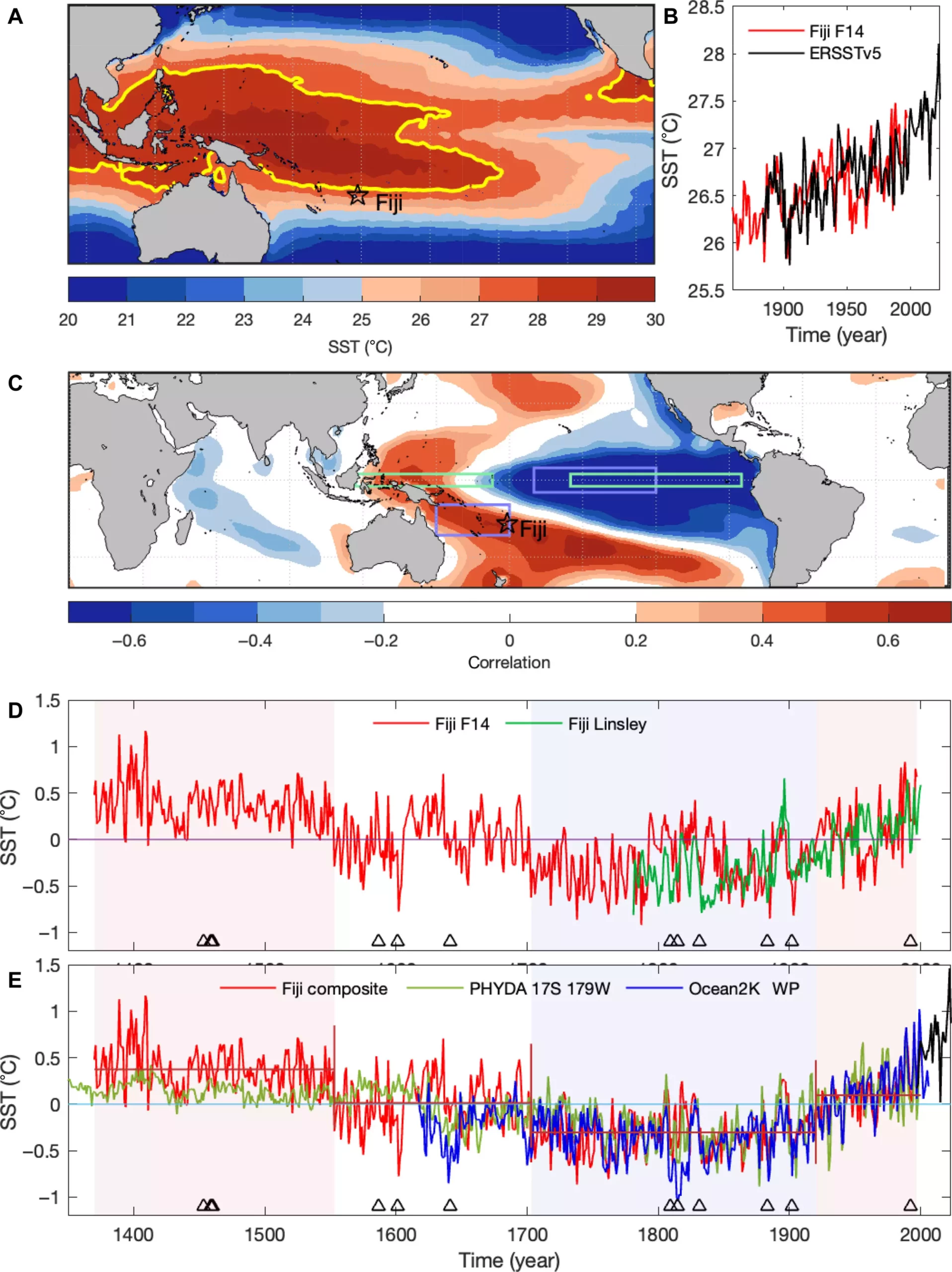In the quest to understand climate change’s trajectory, scientists often turn to natural archives that can provide context for how our present situation compares to the past. Among these, coral reefs stand out as remarkable biological archives, preserving decades—even centuries—of climatic data. Recent findings led by Dr. Juan Pablo D’Olivo and Professor Jens Zinke, in collaboration with an international team of climate scientists, utilize a remarkable coral record spanning 627 years from Fiji to deepen our understanding of ocean temperature fluctuations and climate variability in the Pacific region since 1370. This research brings to light the interplay between anthropogenic climate change and existing natural patterns, emphasizing the urgent need for raising awareness about our planet’s changing climates.
A Window into the Past
The newly analyzed coral record reveals that ocean temperatures around Fiji experienced a warming phase from 1380 to 1553, akin to more modern periods, including the late 20th and early 21st centuries. While initial indications may suggest that fluctuating temperatures are a recurring theme within Earth’s history, the new data illuminates that the Pacific’s recent climatic behavior diverges markedly from historical norms post-1920. The researchers have identified this pattern as a result of human-induced climate change, profoundly altering the natural climate balances that have persisted for centuries.
By utilizing advanced geochemical techniques, such as measuring the strontium/calcium (Sr/Ca) ratios in coral samples from the giant boulder coral Diploastrea heliopora, researchers have been able to reconstruct past sea surface temperatures. This method offers a continuous and precise record of thermal conditions, proving that today’s ocean temperatures are the highest they have been in over six centuries. Such data not only shapes a narrative of climatic continuity but starkly illustrates the unprecedented conditions faced by ecosystems and communities today.
The repercussions of ocean temperature rises ripple across ecological and human systems alike. Coral growth is directly influenced by water temperature, and with rising temperatures leading to mass bleaching events, the survival of coral reefs hangs in the balance. Coastal communities that depend on these ecosystems face a dual threat: environmental degradation and diminished livelihoods. Furthermore, understanding climate variability is essential for anticipating weather pattern modifications, which increasingly contribute to extreme weather events. In consequence, the findings from this study carry significant weight for the millions living across the Indo-Pacific region, highlighting an impending crisis that could provoke extensive socio-economic repercussions.
Dr. Ariaan Purich emphasized the critical nature of understanding long-term climate variability in the Pacific. With this heightened comprehension, scientists can better forecast future climate scenarios and devise strategies to mitigate the impact of such changes. Importantly, the research points to an alarming trend—current patterns of warming are not merely historical anomalies but rather characteristic features of the climate change era.
The study’s conclusions resonate with urgency, pushing for concerted action towards limiting global warming to the critical threshold of 1.5 degrees Celsius. The findings reinforce that our path forward necessitates a robust commitment from the global community—enhancing renewable energy capacities and phasing out reliance on fossil fuels must become priorities if we are to stave off the worst effects of climate change. The natural systems that once provided a buffer against climate variability are now at risk, raising the stakes for regional and global dialogues on climate policy.
Ultimately, these insights from Fiji’s coral history serve as a clarion call—a reminder that preserving our planet’s health is intricately tied to human behavior and policy decisions. The integration of ancient climatic wisdom holds the potential not only for understanding our current predicament but also for engaging collaboratively in solutions that could guide us toward a sustainable future. As we move forward, let us not only acknowledge the signs but respond with actionable commitment to safeguarding the planet we call home.

